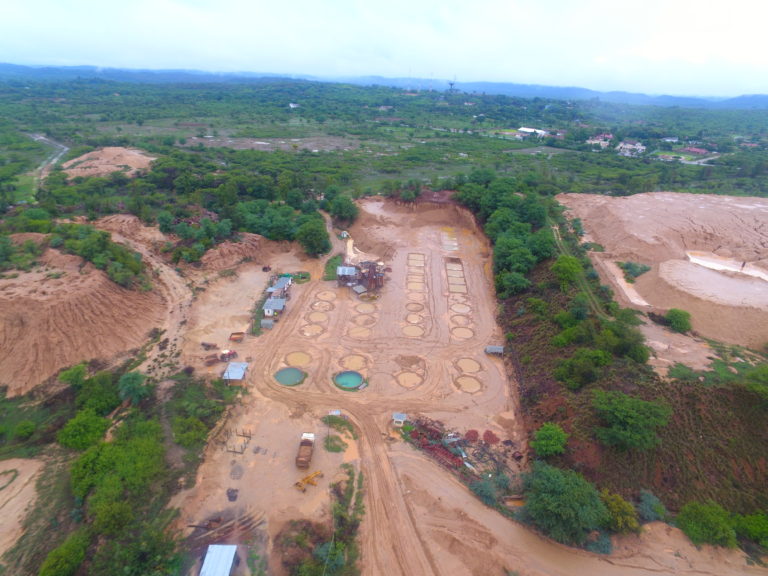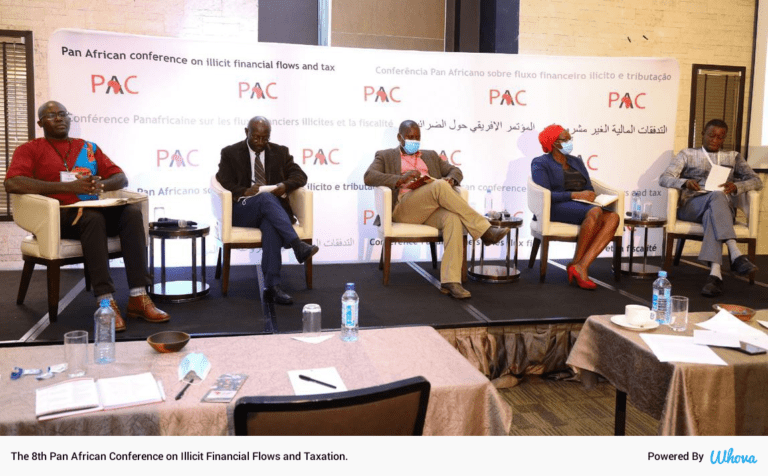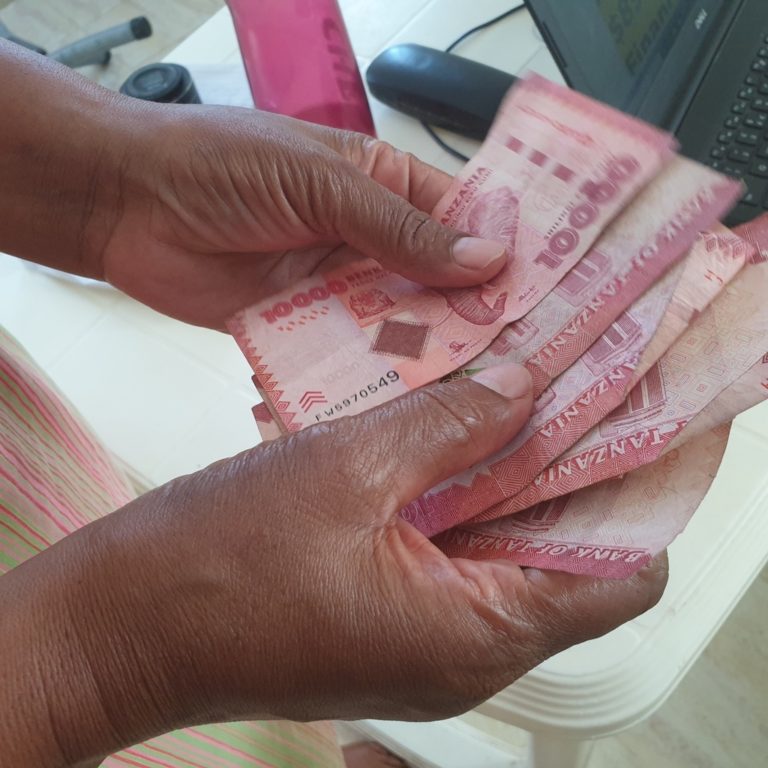On April 18, Zimbabwe celebrated its 41st independence anniversary from British colonial rule amid a presidential promise that the country’s mining sector will contribute US$12 billion dollars in revenue by 2023.
The country’s over sixty mineral resources ranging from diamonds, platinum and gold remain under-explored. According to the country’s minister of Mines and Mining Development Mr. Winston Chitando, “Zimbabwe does not know the estimated value of its mineral wealth.”
Despite the huge wealth in mineral deposits, the lives of many Zimbabweans have not improved. In his independence speech, Zimbabwe’s President Emmerson Mnangagwa reiterated his government’s plan to have the mining sector contribute hugely to the economy and improve the lives of citizens. By 2030, Zimbabwe seeks to achieve an upper-middle-income economic status.
“The mining industry is projected to rebound by eleven percent this year. Guided by the strategy to achieve a US$12 billion industry by 2023, programs that include increased exploration, expansion of existing mining projects, resuscitation of closed mines, opening of new mines, mineral beneficiation and value addition are being prioritized,” said President Mnangagwa in his independence speech.

Zimbabwe’s goldfields and other mineral fields are today a contested terrain where even the elite and state institutions including the country’s Defence Forces are scrambling for a slice of the cake. In 2008, Mr. Farai Maguwu, the director of Center for Natural Resource Governance was arrested for bringing to attention the abuses committed by Zimbabwe’s security forces in the Marange diamond fields.
The gold sector has not been spared. According to a 2020 report by the International Crisis Group (ICG) gold buyers linked to President Mnangagwa buy the precious mineral on a premium, deterring the gold panners from selling the gold to Fidelity Printers and Refiners, the sole authorized gold buyer.
Resources Plunder By An Intemperate, Predatory Elite
After his dismissal then as Vice President in November 2017, Mnangagwa was accused of amassing wealth by grabbing mines belonging to small-scale miners. “Mnangagwa also grabbed many mines which belong to small-scale miners. He was abusing his authority as the Vice President to grab whatever he wants. We say Mnangagwa must be arrested because he is corrupt, he must face the music,” said then party official Mr. Dickson Mafios at a rally.
In 2018 former Higher Education Minister in Zimbabwe Prof. Jonathan Moyo also revealed that President Mnangagwa’s activities and those of his close circle are despicable that even the United Nations (UN) had to publish a report about their activities in the Democratic Republic of Congo’s (DRC) second civil war.
“The person who led the plunder of resources in the DRC leading to the United Nations (UN) investigating and coming with a report that is still there is Emmerson Mnangagwa along with the military cabal of General Chiwenga and SB Moyo. The person who brought the Chinese to plunder Chiadzwa Diamond Fields up to a point to which we had at the very least from 2007 to 2014 some US$12 to US$15 billion in diamond revenue that remain unaccounted for that went into the pockets of individuals is Mnangagwa,” Prof. Moyo said.
The report titled Plundering of DR Congo Natural Resources: Final Report of the Panel of Experts (S/2002/1146) was published in October 2002.

Today President Mnangagwa and his family’s name continue to ring in illegal gold deals. Illegal gold mining or artisanal small-scale mining in Zimbabwe has been a launchpad for many illicit financial flows and gold smuggling out of the country. Home Affairs minister Mr. Kazembe Kazembe in February this year admitted that smuggling and illegal gold deals are costing the country between US$1.2 billion to US$1.5 billion dollars annually.
The First Lady distanced herself from Ms. Rushwaya’s arrest. “I have no dealings nor involvement with Ms. Rushwaya of any illegal kind,” she said. The gold sector in Zimbabwe has become a vital cog in foreign currency earning with many entrants using President Mnangagwa’s name to make inroads.
A US$12 Billion Election Campaign Promise For 2023?
Mr. Maguwu doubts the sincerity of the Mnangagwa administration in reaching the US$12 billion mining sector contribution to the economy by 2023. He further notes “Zimbabwe has far surpassed that mark.” Late Zimbabwe’s president Robert Mugabe in 2015 claimed the country had not received much from its diamond industry and lost about US$15 billion in the sector.
“We have not received much from the diamond industry at all. Not much by the way of earnings. I don’t think we have exceeded US$2 billion or so and yet we think that well over US$15 billion dollars have been earned in that area,” President Mugabe claimed then.
Zimbabwe is scheduled for general elections in 2023 and according to Mr. Maguwu, the government initiative in the mining sector is a campaign tool similar to the 2013 elections.
In 2010, Zimbabwe had an Employee and Community Share Ownership Scheme (ECSOS) in which foreign-owned companies were expected to cede some of their investments towards employee and community empowerment. After the 2013 elections, the scheme has been dumped.
“To me, it sounds like a political statement targeting the 2023 election, similar to the 2010 community share ownership scheme that was going to empower communities, and it led to the 2013 elections. After that election the whole thing died a natural death, now they are talking about a US$12 billion dollar economy by 2023, which is another election year. There is no feasibility study as to what is wrong with our mining sector. You cannot fix what you do not know. So there is no research carried out to say what is wrong and how do we correct it.”
“This government is silent on mining corruption. They are not talking about it and that is where the money is. It is not about making big statements and making promises to the nation,” Mr. Maguwu said.

Minister Chitando dismissed Mr. Maguwu’s assertion. He says the expected US$12 billion dollar contribution by the mining sector will be revenue streamed into the national fiscas.
“The US$12 billion dollars is the revenue that will be coming to the fiscas from the mining sector. There are projects happening now in the platinum sector, we have three new projects taking place. We have expansion projects taking place and all projects are taking place in reality. The fact that we took a five-year window is because that is the target we are working on,” explained Minister Chitando.
Uphold Rule Of Law To Plug Leakages, Illegality
Mr. Wellington Takavarasha, the chief executive officer of the Zimbabwe Miners Federation (ZMF), an organization owned by President Mnangagwa’s close relative Ms. Rushwaya, highlighted that artisanal small-scale miners contribution to the US$12 billion contribution is dwindling as some miners are being arrested.
Between 2017 and 2020, artisanal small-scale miners contributed a total of sixty tonnes of gold to the sanctioned government buyer, Fidelity Printers and Refiners. Because of arrests of the artisanal small-scale miners, gold output has declined from 60 percent to 47 percent. In 2019, small-scale miners contributed 17 tonnes as opposed to 9.8 tonnes in 2020.
“This year’s first quarter, our output has declined but we have the potential to contribute to the US$12 billion target. Our strategies include having our ventures formalized, mechanized, and have government resuscitate the mining industry loan fund,” said Mr. Takavarasha.
ZMF estimates that a tonne of gold is traded illicitly outside the formal market, which is fuelled by more than 1.3 million unregistered artisanal small-scale miners against its membership of 40,000.
Zimbabwe’s Gold Trade Act prohibits people without licenses to trade in the precious material. “Illegal mining is a livelihood activity that needs to be formalized. As it is, government is not benefiting but the middlemen and police are benefiting,” added Mr. Takavarasha.
Illegal gold dealings and smuggling is no new phenomenon in Zimbabwe. Successive ministers have raised the issue but their principals have turned a blind eye to their calls. Economist Mr. Nyasha Muchichwa says for government to stop the leakages, it needs to “uphold the rule of law and offer a competitive price to stop arbitrage.”
Government sanctioned buyer Fidelity Printers and Refiners is currently buying gold at US$45 per gram while on the illegal market it is US$54 per gram.
“The fact that we can quantify the money we are losing means we know that it is happening and when it has happened. The law should take its course and to those caught on the wrong side to be used as an example on what not to do.”
“When paying for those mining or selling gold, let us pay competitive rates so there is no arbitrage. As long as we have different prices this is when you find people making other means to get more money from the mineral they are holding. We need to address the price, laws that govern the selling, and the issue of our porous borders,” said Mr. Muchichwa.


















